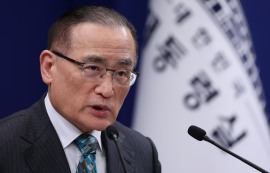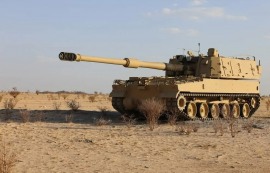러시아의 시리아 지원 철회여부가 향후 최대변수
 이미지 확대보기
이미지 확대보기존 킬더프 대표는 한국시간 6일 방영된 미국의 유력경제채널 CNBC에 출연, “최근 유가가 오른 것은 단기 급락에 따른 기술적 반등일 뿐 대세 하락은 당분간 계속 될 것”이라고 전제하면서 “한계선을 배럴당 30~33달러로 보고 있다“고 밝혔다. 30~-33달러 범위 중에서도 하한선인 30달러로 예측하는 전문가들이 많다고 킬더프 대표는 덧붙였다.
투자회사 대표가 방송의 공개 인터뷰에서 별다른 단서조건 없이 구체적인 시세까지 거론하며 추가하락을 언급한 것은 다소 이례적이다. 자칫 잘못하면 회사의 명성에 누가 될 수도 있는데 이에 개의치 않고 소신발언을 한 것이다.
킬더프는 최근 정유회사들의 감산 움직임과 관련하여 “이는 아직 ‘찻잔 속의 태풍’일 뿐”이라면서 “하루 910만 배럴의 미국 원유생산량은 전혀 줄지 않았다”고 말했다.
다음은 회견 내용 영문 요약
So much for the rally. Oil will likely still head as low as $30, analyst John Kilduff told CNBC on Thursday.
"I still believe we're going to go to that $30 to $33 area, which is the low point from the financial crisis in 2008, 2009. What you saw over the past several days was technical in nature, a short squeeze. This volatility is a little crazy and I think that $30 target is a downside target is for technicians that are in this market," the founding partner of Again Capital said in a "Squawk Box" interview.
U.S. crude tumbled 9 percent on Wednesday to settle at $48.45, erasing nearly all of its gains in the previous two sessions. The benchmark commodity—West Texas Intermediate—had soared 22 percent from a nearly six-year low of $43.58 last Thursday, ending the day at $53.05 on Tuesday.
Data on Friday that showed exploration and production companies had shut down 90 rigs in the prior week boosted the rally. Kilduff said that the industry had merely gotten rid of "the runts of the litter," noting that U.S. production had not fallen and still stands at 9.1 million barrels a day.
He said speculation that Saudi Arabia, the world's largest oil exporter, would agree to production cuts in order to reach a deal with Russia on the Syrian conflict also sent oil higher.
Saudi Arabia's refusal to support cuts at a meeting of the Organization of the Petroleum Exporting Countries in November accelerated the rout. Meanwhile, Russia is facing the twin headwinds of falling oil prices and economic sanctions over its role in the conflict in neighboring Ukraine.
"People want to write off OPEC. You can't do that. They do still matter to a degree. A coordinated cut of some magnitude would stop the price slide," Kilduff said.
Fluctuations in currency markets and central bank action has also fed volatility in the oil markets. A strong U.S. dollar drives down oil prices because the commodity is bought and sold in the currency.
"At this point, FX volatility has become the prime driver in global volatility. You cannot make any investment decisions without actually understanding which way the dollar is basically heading," said David Woo, Bank of America Merrill Lynch's head of global rates and currencies research.
Forex volatility is at its highest level in 20 years for noncrisis periods, research from Bank of America released this week showed.
That volatility could continue as countries around the world engage in a currency war, he said. With nations facing fiscal constraints, the only tool available to central banks to stimulate growth is a weaker currency, he said.
"If everyone's playing this game you have no choice but to play it because otherwise you get left behind. We call it war because it's a zero sum game. Somebody wins, and somebody else loses," Woo said.
There's little the United States can do to stop the dollar from strengthening because the European Central Bank and the Bank of Japan are intent on spurring growth through monetary policy.
But the most important question for oil—and the biggest risk of 2015—is the prospect that China follows suit and moves to depreciate its currency.
"If China decides to play the same game, it will be a disaster because commodity prices are going to crash because China consumes 40 percent of the world's basic commodities," Woo said. "And then you're going to trigger a competitive devaluation around the world. The 10-year yield is going to go to 1.25 percent if China wants to devalue [its currency] 10 percent."
/글로벌이코노믹 김재희 기자










































